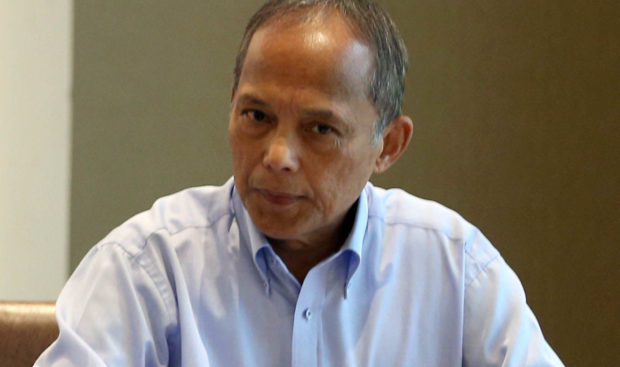MANILA, Philippines — Officials of the Department of Energy (DOE) and the Energy Regulatory Commission (ERC)—two of the main government agencies in charge of managing the power sector—on Thursday blamed the country’s sole systems operator, the National Grid Corporation of the Philippines (NGCP), for the outages that had hit the country earlier this month, saying it failed to comply with the terms of its franchise of ensuring a stable power supply.
Energy Secretary Alfonso Cusi called out the NGCP for the “late and incomplete” submission of its grid operating and maintenance program and for disregarding the DOE’s recommendations to enter into more power supply contracts with generation companies to ensure a more stable energy situation.
“Compliance by NGCP [with] existing laws and regulations to ensure adequate ancillary services is mandatory and not optional. By not contracting the reserves, NGCP is enjoying benefits without accepting the burden required by its franchise,” he said.
Cusi made the statement at an online hearing of the Senate committee on energy, which sought to “find long-term solutions to the country’s power supply shortages,” based on Senate Resolution No. 740 filed by Sen. Manny Pacquiao.
In his June 2 privilege speech, Pacquiao chastised Cusi for his “incompetence” in addressing the country’s power issues, after Metro Manila and many parts of Luzon were hit by a series of at least 12-hour brownouts on May 31 and June 1.
Pacquiao accused Cusi of neglecting his main function as a Cabinet member after the latter presided over what the senator’s camp had described as a meeting of “rogue forces” within the ruling Partido Demokratiko Pilipino-Lakas ng Bayan.
Pacquiao is the party president while Cusi is the vice chair.
Planned, forced outages
At the Senate hearing, Cusi explained that the hourslong outages were caused by four power plants that had conducted “planned and forced outages.”But he was quick to add that his department, along with the Department of Justice, Philippine Competition Commission and ERC were investigating if power generation companies had colluded to “sabotage” the government.
“If found to be so, proper charges shall be filed against those responsible,” he said.
Cusi added that the DOE was also looking into “abnormalities” in the power supply in the days leading to the brownouts, suspecting that generation companies did not comply with the requirement to provide their maximum power capacity.
He also called on Congress to amend the franchise granted to NGCP by giving the DOE the power to sanction the grid operator, citing how for years it had supposedly ignored the agency’s recommendations.
At the same time, he urged lawmakers to amend the Energy Power Industry Reform Act (Epira), and revert the management of the country’s power grid to state control, citing how the Philippines was the only country in Southeast Asia that had fully entrusted its power management to the private sector.
In response, Anthony Almeda, NGCP president and chief executive officer, lamented how the agency, as grid operator, had been getting all the blame for the outages when its function was only to provide a pathway for the electricity to reach its consumers.
“Part of our role is to dispatch any and all available power from generating plants to meet the demand while ensuring the balance and maintaining the stability of the grid. We do not have anything to do with generation. The Epira prohibits us from putting up plants or selling power,” he said. INQ
